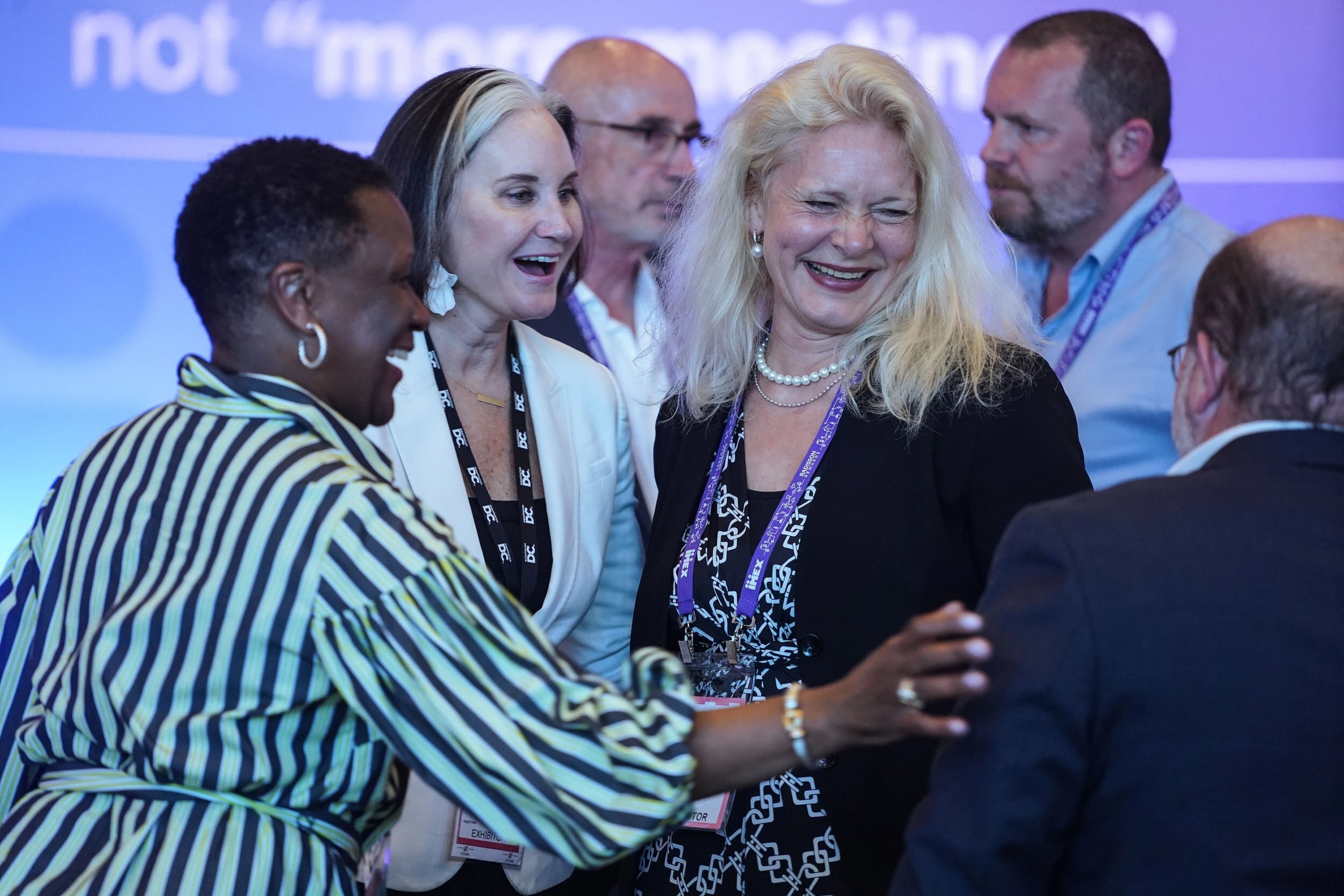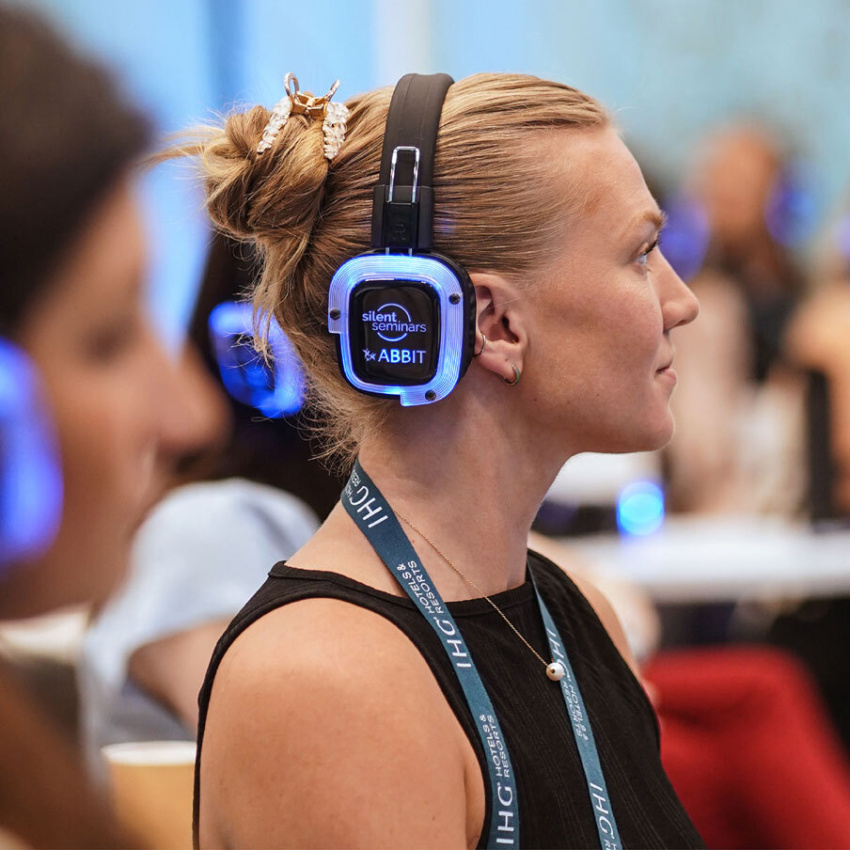You might have heard the business events industry referred to as the MICE industry, particularly in Europe—but what does it mean? If you’ve ever asked yourself “what is a MICE event?” or “what are MICE events?”, t his article breaks down the meaning of MICE, the trends and challenges shaping the industry and highlights why MICE events matter.
What does MICE stand for?
MICE is an acronym for meetings, incentives, conferences and exhibitions. These represent the four main areas of the meetings industry. Let’s break it down.
• Meetings: Meetings are structured gatherings of professionals or stakeholders to discuss business strategies, project updates or organizational goals. They can range from small team sessions or large corporate gatherings.
• Incentives: Incentive travel is a way for companies to reward employees or partners for outstanding performance. Incentive travel often involves luxurious trips or once-in-a-lifetime travel opportunities. The aim is to inspire continued excellence or help teams reach specific goals.
Read more about incentive travel
• Conferences: Conferences are formal, usually multiday events where experts and professionals share knowledge, research and innovations. They can be cornerstone gatherings for industry professionals to learn, connect and collaborate. Most conferences include keynote speeches, panel discussions and networking opportunities.
• Exhibitions: Exhibitions, such as IMEX Frankfurt and IMEX America, are large-scale events where companies showcase products, services or technologies to potential clients, partners and the public. Trade shows or exhibitions often include education and networking opportunities too.
Find out more about exhibitions

Why MICE?
The MICE industry, also known as the business events industry, is a powerful driver of global economic growth. It supports a wide range of sectors including hospitality, transportation, catering, technology and marketing. Cities that host MICE events benefit from increased tourism, job creation and international exposure.
MICE events, or business events also promote sustainable long-term development of host cities by encouraging lasting partnerships and investment in infrastructure.
Learn more about business event industry advocacy and advancement
Benefits of MICE events
MICE events offer a wide range of benefits for attendees, organizers and host destinations:
• Networking: They bring together professionals from different industries and corners of the world, creating opportunities for collaboration and partnership
• Learning: Conferences and meetings provide established and trusted platforms for sharing research, trends and best practices
• Brand visibility: Exhibitions allow companies to showcase their offerings to a targeted audience. Meeting clients in person helps build and maintain relationships
• Motivation: Incentive travel boosts morale and encourages productivity
• Economic impact: Host cities benefit from increased spending on hotels, restaurants and local attractions. Many attendees also extend their stay for personal travel
Challenges in the MICE sector
Despite its many benefits, the MICE industry faces several challenges:
• Budget constraints: Organizing large-scale events requires significant investment. Many event planners work with tight budgets and high expectations
• Logistics: Coordinating venues, travel and schedules can be demanding. Whether large or small, events involve complex logistics and collaboration with host cities and local vendors. Destination management companies often help planners navigate these challenges. But if things don’t go to plan, it can affect brand reputation and future registrations
• Environmental impact: Business events often involve international travel contributing to carbon emissions. Attendee travel, single-use signage, catering waste and event swag can all increase an event’s carbon footprint. Securing stakeholder buy-in for sustainable solutions can be a challenge
Trends shaping the MICE industry

The business events industry is constantly evolving to meet economic demands and business needs. Here are some current trends:
• Sustainability: There’s increasing focus on sustainable event planning. Generation Z, in particular, values sustainable and purpose-driven events. Eco-friendly practices such as paperless registration, local sourcing and carbon offsetting are becoming more common
• Personalization: In a world full of distractions, personalization is becoming increasingly important. Tailoring experiences to individual preferences and professional goals helps show attendees they’re valued
• Technology integration: Event tech is evolving fast. And attendees now expect tech that enhances their experience, from AI-generated takeaways to VR and event apps
How to get involved in MICE events
Whether you’re a business professional, marketer or hospitality provider there are many ways into the MICE industry. Here are a few ideas:
• Attend events: Participate in conferences and exhibitions relevant to your field
• Sponsor or exhibit: Promote your brand by sponsoring education sessions or activations
• Collaborate: Partner with venues, caterers and tech providers to become part of the events world
Learn more about becoming an event professional
Whether you’re planning your first conference or exploring incentive travel options, the world of MICE and business events offers endless possibilities to learn, network and collaborate.

FAQs
What is a MICE event?
A MICE event is a business event. MICE includes meetings, incentives, conferences and exhibitions. These events are designed for professional, educational or networking purposes.
What are MICE events used for?
MICE events bring professionals together to network, learn, showcase products or reward performance . They support business development and industry growth.
Why is the MICE industry important?
The MICE industry drives economic activity, supports tourism and fosters innovation. It connects professionals across sectors and promotes global collaboration.
How can I participate in MICE events?
You can attend as a delegate, sponsor, exhibitor or organizer. Many companies also offer incentive travel programs for top-performing employees.





